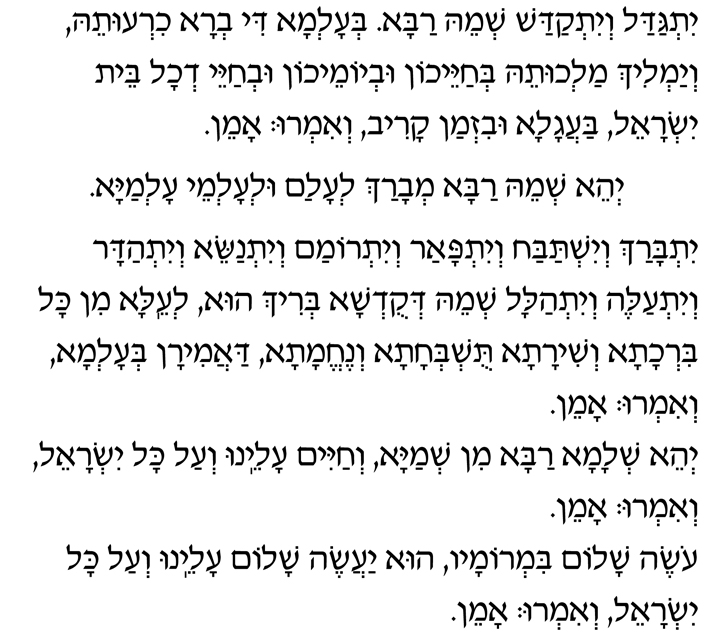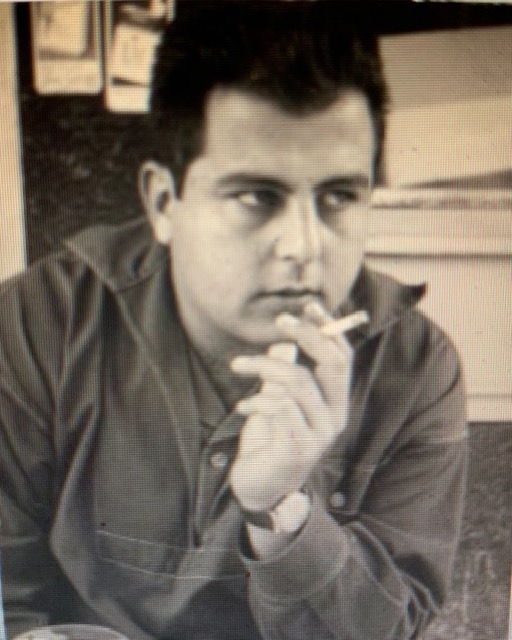
Hearing a Kaddish recitation has always made me uncomfortable. Invariably my throat swelled, my eyes welled up and I’d look down, praying that it would end quickly. I consciously dreaded saying it for my Abba one day. And now that day has come.
My earliest memory of Abba is of our first serious talk and served as the cornerstone of our relationship. I was four-years-old and jealous of the attention my new baby sister was getting at our grandparents’ house. Apparently she didn’t know it’s all about me, so I escaped across the narrow street in Kfar Hayarok to sulk in a field of wildflowers. Abba didn’t buy into the drama. I remember him walking towards me in his usual confident, calm and deliberate manner. A grand imposing figure, with a gentle soul and generous spirit. I turned away from him, kicking flowers with my red patent leather Mary Janes.
He placed his giant paw on my shoulder, bending down on one knee, elbow propped on one thigh, fingers clutching the eternal cigarette that sent smoke into the ether. Years later we fought about his smoking. He quit, started again, quit and died from something else all together. Now I picture him and his beloved dad sitting on lawn chairs in heaven smoking and talking incessantly, cups of tea, diet orange soda, watermelon and ice cream bowls between them.
I shrugged and turned my back to him, establishing a pattern of sulking and silence, which constitutes my default behavior at the onset of adversity to this day. Undeterred, he wrapped his arm around my shoulders, drawing me near. I’ve never been able to resist his reassuring embrace. At the hospital, almost five decades later, I couldn’t get close enough to his giant warm hands. But he didn’t squeeze back.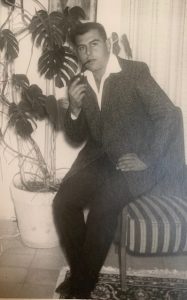
“Now that you’re a big girl, there’s something you need to understand,” he said. “You don’t have to run away or sulk. You can cry when you feel sad, but when you’re done, we’ll talk and figure out what you can do to help yourself. That’s how grown-up girls solve problems.”
Forty-six years later I can still feel the moment of impact. I remember thinking, I should just say what’s bothering me and he will help me sort it out. His words defined not only my first coherent memory, but also the promise and gift that he gave me that day. He said what he meant, always stood by his words, and didn’t shy away from controversy, especially when the topics were messy — and there were plenty over the years.
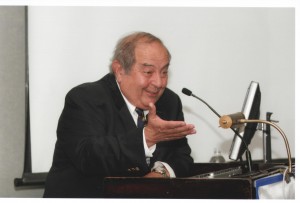 Abba’s life mission was to improve outcomes for women considered at high risk during their pregnancies. He was a leading world expert in maternal fetal medicine, with a concentration on gestational diabetes. He authored hundreds of research papers and publications, and wrote and edited several medical text books, making the MD and PhD after his name actually mean something. He lectured all over the world and accumulated more awards than his office walls could handle, but to me, he was just Abba.
Abba’s life mission was to improve outcomes for women considered at high risk during their pregnancies. He was a leading world expert in maternal fetal medicine, with a concentration on gestational diabetes. He authored hundreds of research papers and publications, and wrote and edited several medical text books, making the MD and PhD after his name actually mean something. He lectured all over the world and accumulated more awards than his office walls could handle, but to me, he was just Abba.
He always answered his cellphone right before a lecture, during a teaching session or very late at night. He boarded numerous flights to emotionally bail out his kids and never once laid a guilt trip on any of us. He said he needed to see the whites of our eyes to determine for himself that we’re okay. Once when my husband was on call at the hospital, and I was home all alone with my inconsolable newborn, he stayed on the speaker phone with me all night just to keep me company.
He listened without freaking out – a talent I have yet to develop as a parent. He prefaced requests for advice with, “What do you think you should do?” Always supportive, encouraging, and most of all, empowering. But sometimes, when we were particularly annoying, he said, “Do what you want, but you’d be smart to listen to me.” And boy, did we.
Straightening me out while subtly convincing me it was my idea all along, was one of his special talents. One such implanted seed resulted in my application and subsequent graduation from law school, which was never in my plans until he sat me down on our front porch for a talk.
I spent years incessantly lecturing him on eating too many carbs, smoking too many cigars and not exercising enough. I berated him for the language he used in front of his grandchildren, who just laughed and reminded us they’ve heard it all before. I begged him to wear long pants and put on a tie, but he preferred his blue shorts, button down and flip-flops. And now, we’re gently begging my mom to allow us to make pillows out of shorts and shirts so that we can hug him often and hard.
“Who are we trying to impress?” he’d ask.
He was right. I’m already plenty impressed and so is everyone who knew him. There aren’t too many giants in this world who are truly exceptional and magical. 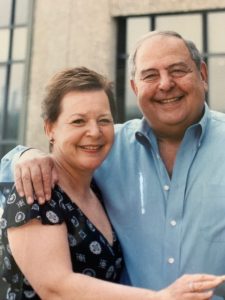
Saturday mornings at Abba’s house began with an interminable chain of calls from friends and family near and far seeking advice, or just the sound of his voice: intelligent, balanced, reassuring and most of all, honest.
“If you called me for a bullshit answer, you’re wasting your time and mine.”
We know, Abba. We know. We just don’t have the guts to make a big move without your push.
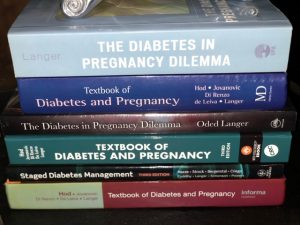 He was supposedly retired for the last several years, but was hard at work on research papers and publication deadlines. When his incredible new textbook was published, there was barely room on the shelves among all his bound words of wisdom. He humored my mom by going to the gym with her a few mornings a week, probably just to get her off his back, and to support her need to promote his health. “I’ll do whatever makes my wife happy,” he said. Because no one loved his wife the way Oded loved Nieli.
He was supposedly retired for the last several years, but was hard at work on research papers and publication deadlines. When his incredible new textbook was published, there was barely room on the shelves among all his bound words of wisdom. He humored my mom by going to the gym with her a few mornings a week, probably just to get her off his back, and to support her need to promote his health. “I’ll do whatever makes my wife happy,” he said. Because no one loved his wife the way Oded loved Nieli.
Abba was known as “Abba” instead of Saba (grandfather, in Hebrew) to his grandchildren. His Israeli friends were baffled by the misnomer, but then it all made sense. My son, the eldest grandchild, heard me saying “Abba” so many times that when he started to speak, he addressed him as Abba and it stuck for future grandchildren. It’s likely a testament to the number of times I said his name, most of the time loudly, because he was more than a little deaf (although he heard perfectly when I’d whisper to my mom about his diet).
“You worry about your stomach and I’ll worry about mine,” he said with a smile. “And since you aggravated me, I’m going outside for a cigar. Bring some ice cream and join me.”
Abba has been nicknamed The Godfather, Tony Soprano, The Israeli General and other titles conveying a tough, in control yet somewhat vulnerable personality. He dismissed these monikers with a laugh. The one that appealed to him was Frank Sinatra, because he did it his way. And that defines my dad.
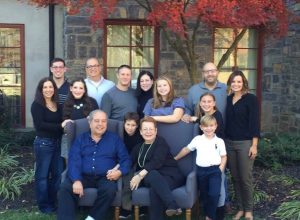 Now that he’s been gone for a week I wonder if he knew just how deeply we loved, cherished and worshipped him. He certainly spent his life making sure that we know we’re loved, admired, respected and cherished, and that we can accomplish anything we set our minds to.
Now that he’s been gone for a week I wonder if he knew just how deeply we loved, cherished and worshipped him. He certainly spent his life making sure that we know we’re loved, admired, respected and cherished, and that we can accomplish anything we set our minds to.
Happy Father’s Day in heaven, Abba. The enormous abyss you left behind can only be filled with the pure magic that is your legacy to us.
